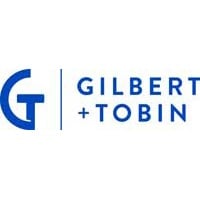

General counsel | Carnival Australia





Lauren Miller
General counsel | Carnival Australia
The planning, negotiation and application for ACCC authorisation of the proposed development with the Port of Brisbane, a new A$150m port terminal on the Brisbane River dedicated to cruise ships. This was successfully authorised by the ACCC, subject to conditions. The Port of Brisbane estimates that the New Cruise Facility could triple the size of Brisbane’s cruise industry over the next 20 years, safeguarding the current 3,750 cruise industry jobs, bringing 766,260 international and domestic cruise visitors to Queensland and contributing A$1bn in gross output annually to Queensland’s economy. This is a significant investment for the Brisbane economy and region and transformative for the cruise ship sector.
[Also], a collaborative initiative with the Australian Department of Agriculture and Water Resources to permit guests requiring assistance dogs to travel on cruises between Australian ports. I worked closely with the Department to ensure that any biosecurity risks could be managed and increased access could be provided to guests with disabilities.
This involves developing shared understandings and objectives. Taking time to understand strategic plans and key drivers for our business partners is vital. It can be as simple as asking to join team meetings from different areas of the business in order to learn about their focus areas and priorities. This deeper understanding allows us to frame our advice in a context which is meaningful. It also creates the opportunity for early engagement on issues where we can add value to the decision-making process. When your business partners appreciate that you are curious about their worlds they are more likely to see you in an expansive way, not just as a lawyer but as a strategist, a problem-solver and someone who is on their team.
Lawyers often hesitate in asking for help, but knowing when to ask for help and admitting you don’t have all the answers is a strength. I often find myself saying to my business partners “I don’t know, but let’s find out together”.
Gaining efficiencies is vital in the in-house context where we need to navigate resourcing and budget constraints. It can be difficult to ensure we are focussing on what is important, not just what is urgent. Sensitising our business to increasingly complex domestic, regional and international regulation demands a lot of our time and attention. To ensure training remains impactful and relevant we are trialling adaptive learning training technology. Adaptive learning takes the learner to the content that they need, by making a preliminary assessment of what they already know and then focussing on the content they are yet to master.
The biggest shifts we are seeing in the legal market transcend sectors or industries. The perception that corporations are entirely self-interested is one we must tackle collectively. In essence, humans make up corporations and they have both the capacity and the responsibility to create accountable institutions, sensitive to their stakeholders. Organisations which embed a culture of ethics and compliance have the power to be a force for good and to make transformative change. In-house legal teams are at the interface of these issues and are well placed to create a culture which supports shared value and ethical decision making.
One of the privileges of working in-house is the opportunity to engage with talented external counsel with deep expertise. I have always considered the interaction between internal and external counsel to be complementary. In-house counsel are highly attuned to the strategic direction of their organisations and external counsel add specialist expertise in order to optimise that strategy.
The quality of external advice will always be a function of the quality of the brief. The brief should not necessarily be considered a standalone document, but a process of relationship building that allows external counsel to gain a deep understanding of your business over time. As the bridge between external counsel and the business, in-house lawyers play a key role in shaping the brief so advice is meaningful and valuable. Giving context is vital. This may involve a greater investment of time up-front but it creates the conditions for powerful partnerships with external counsel long term.
My team contributes significantly to the diversity and inclusion initiatives in our organisation. We participate in diversity working groups in the areas of gender diversity, disability diversity and LBGTIQ+ diversity. Key achievements in the area of gender diversity has been the introduction of The Possibility Project – an inspirational speaker series to encourage the next generation of female leaders, and the creation of a women in STEM scholarship. In addition, we were the first team in the business to pilot an indigenous internship programme in partnership with Career Trackers, which has now expanded to other teams. We have also established an in-house pro-bono practice supporting the Refugee Advice and Case Work Service and other organisations such as Special Olympics Australia.
Leadership is an attitude, not a position. However, to increase the representation of women at senior levels within organisations we need to examine the structural and political barriers which have produced the under-representation we see currently. We must acknowledge that gender diversity objectives can only be realised if they are championed by all genders. If we continue to oversimplify gender diversity an issue solely for women, or as the promotion of women at the expense of men, it will remain divisive and too easy to dismiss.
We need to articulate the holistic benefits of diverse and inclusive teams, we need to confront unconscious (and conscious) bias and be prepared to do things differently. We are the beneficiaries of the incredible effort and energy those before us have invested to break down barriers, we cannot assume that progress is inevitable and we have a long way to go.